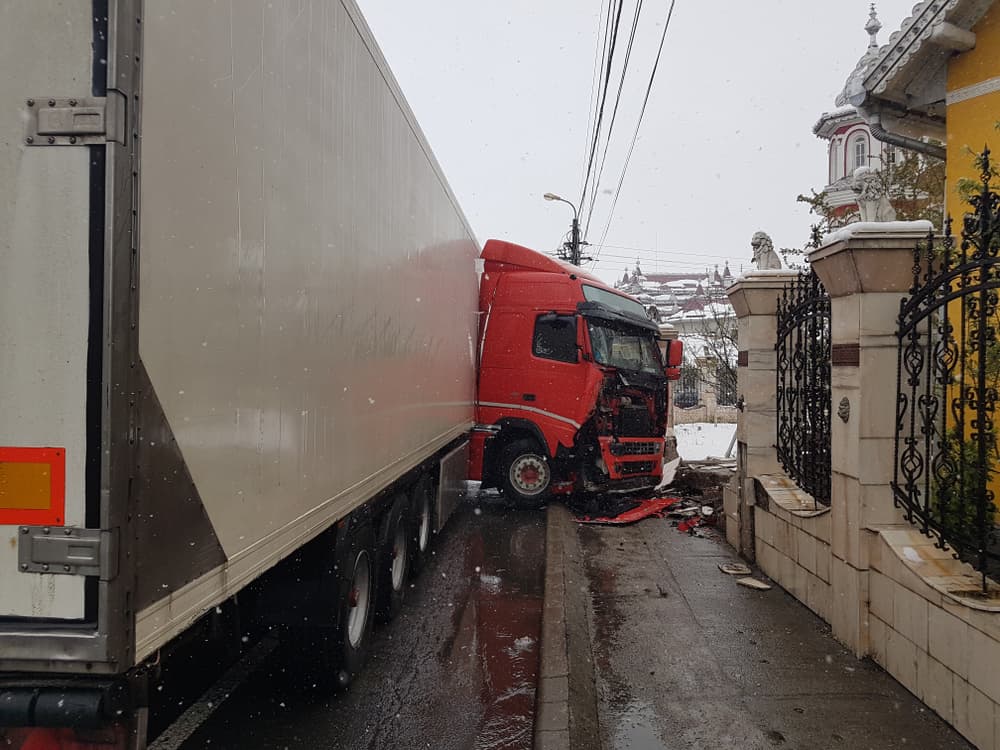The last thing you want to worry about after a truck accident is whose fault it is, especially when it seems obvious, but determining who is liable for a truck accident is crucial.
It’s the only way to secure the compensation you need to cover medical expenses, lost wages, and other damages. The problem is the pain and stress of your injuries, and the complexity of the legal system makes navigating it and identifying responsible parties daunting. That’s where a skilled truck accident lawyer comes in. They can provide expert guidance and advocacy to ensure you receive the compensation you deserve.
Determining Liability in a Los Angeles Truck Accident
In California, determining liability for a truck accident takes analyzing the circumstances of the accident. Multiple parties could be liable, depending on the specifics.
Here’s an overview of potential liable parties:
- Truck Driver: If the accident was caused by the truck driver’s negligence, such as speeding, driving under the influence, or not following traffic laws, the driver can be held liable.
- Trucking Company: The company that owns the truck or employs the driver can be held liable under the legal principle of “respondeat superior,” which holds employers responsible for their employees’ actions performed within the scope of their employment. You could also hold the company directly liable if it fails to follow regulations for vehicle maintenance or driver rest periods.
- Cargo Loaders: If improperly loaded or secured cargo contributed to the accident, the party responsible for loading the truck could be held liable.
- Vehicle or Parts Manufacturers: If a defect in the truck or one of its components contributed to the accident, the manufacturer can be liable under product liability laws.
- Maintenance Providers: The service provider could be liable if the accident was due to poor maintenance, such as failure to replace worn tires or brakes.
- Other Drivers: Sometimes, other drivers on the road contribute to or cause the accident. In such cases, these drivers can be held liable.
Determining liability in a truck accident requires a thorough investigation, including reviewing police reports, analyzing accident scene photos, interviewing witnesses, and consulting with accident reconstruction experts.
A personal injury attorney with knowledge in truck accident claims can help you understand the details.
Statute of Limitations

The Statute of Limitations sets a deadline for filing a lawsuit. In California, victims of truck accidents must initiate their claim generally two years from the accident date.
If the accident resulted in property damage, such as damage to a vehicle, the timeframe to file a claim is three years from the date of the incident.
Understanding and adhering to these deadlines is essential.
Failing to file a lawsuit within the allotted time can result in the permanent forfeiture of the right to seek compensation for injuries and damages incurred. This rule underscores the importance of acting promptly following a truck accident.
Early action ensures compliance with the Statute of Limitations and facilitates evidence collection. Over time, evidence can be lost or deteriorate, and witnesses’ memories may fade, making it harder to build a strong case.
Federal Motor Carrier Safety Regulations (FMCSR)
The Federal Motor Carrier Safety Regulations (FMCSR) set safety standards for the commercial trucking industry to minimize accidents and enhance road safety. These regulations help establish liability in truck accidents.
The hours-of-service rules, a key component of the FMCSR, limit truck drivers’ operating hours to prevent fatigue-related accidents.
If a driver exceeds these limits and an accident occurs, both the driver and the trucking company may face liability for any damages.
Maintenance requirements under the FMCSA mandate that all vehicles undergo regular inspections, repairs, and maintenance, with thorough documentation. Non-compliance raises the risk of accidents and exposes the trucking company to negligence claims if an accident results from vehicle failure.
Driver qualifications outlined in the FMCSA specify who may operate commercial vehicles, including age restrictions, medical certifications, and the necessity of a Commercial Driver’s License (CDL).
If a driver lacks these qualifications or a company fails to verify them, this non-compliance directly affects liability in an accident. The FMCSR acts as a safety and responsibility benchmark in the trucking industry.
Black Box Data
The black box, or Electronic Logging Device (ELD), in modern trucks offers an invaluable data trove that sheds light on the circumstances leading up to an accident.
Key data points that an ELD captures include driving time, which is essential for enforcing hours of service compliance and ensuring drivers do not exceed legal driving limits.
It also logs speed, indicating whether the truck was moving within speed limits or if speeding contributed to the accident. It records acceleration and deceleration patterns, offering insights into drivers’ behavior, such as sudden stops or aggressive driving maneuvers.
ELDs also track engine usage, vehicle movement, and even if the truck’s engine was on or off, providing a comprehensive overview of the truck’s operation before the accident. This can be crucial for understanding if the truck was properly used and according to regulations.
The data also indicates the truck’s mechanical condition. Irregularities in engine performance data can suggest maintenance issues that might have caused the accident, potentially shifting liability to maintenance providers or manufacturers.
A truck’s ELD becomes a critical piece of evidence. It offers an objective account of the truck’s and driver’s actions, contributing significantly to determining liability.
ELD data can help ensure justice by providing a factual basis for understanding the events leading up to an accident, emphasizing the device’s importance in modern trucking operations and accident investigations.
How Comparative Negligence Works
California’s comparative negligence law allows for the distribution of fault among all parties involved in an accident. Each party is assigned a percentage of fault based on their contribution to the accident. This percentage then determines the amount of compensation the plaintiff can receive.
Here’s how it works:
If a plaintiff is found to be partially at fault for the accident, their compensation will decrease by their percentage of fault.
The key aspect of California’s law is that it allows plaintiffs to recover damages even if they are found more at fault than the other party or parties involved. This is known as “pure comparative negligence.”
Types of Truck Accident Damages

Victims of truck accidents often face a daunting journey to recovery, both physically and financially. Understanding the damages they may be entitled to helps ensure they receive just compensation.
These damages are economic, non-economic, and, in some cases, punitive damages.
Economic Damages encompass the tangible financial losses a victim incurs in the accident. These include:
- Medical Expenses: This covers the cost of emergency services, hospital stays, surgeries, medications, medical devices, ongoing treatments, and rehabilitation. Given the severity of injuries resulting from truck accidents, medical expenses can be substantial and long-term.
- Lost Wages: Victims often miss work and income due to injuries. Compensation for lost wages replaces the income.
- Loss of Earning Capacity: More severe injuries may prevent a victim from returning to their previous job or working in the future, compensating for the loss of ability to earn income.
- Property Damage: This covers repairing or replacing the victim’s vehicle and any other personal property damaged in the accident.
Non-economic Damages: address the intangible losses that don’t have a specific monetary value but significantly impact the victim’s life.
These include:
- Pain and Suffering: Compensation for physical pain and emotional distress. This can include anxiety, depression, and loss of enjoyment of life.
- Emotional Distress: Specifically targets the psychological impact of the accident, such as fear, insomnia, and other forms of psychological trauma.
- Loss of Consortium: Recognizes the impact of the victim’s injuries on their relationships with their spouse or family members, including loss of companionship and support.
The court sometimes awards punitive Damages. They punish the defendant for reckless or egregious behavior and deter similar conduct.
Determining the full scope of damages and their value requires a thorough evaluation of the victim’s needs, the impact on their quality of life, and the circumstances of the accident.
Legal experience is often necessary to accurately calculate these damages and to negotiate fair compensation. Truck accident victims are encouraged to seek knowledgeable legal counsel to navigate the complex process of claiming and securing the damages they are rightfully owed.
Importance of Legal Representation in Truck Accident Cases

Navigating the aftermath of a truck accident is fraught with complexities, making the guidance of a truck accident attorney invaluable.
These professionals bring a wealth of knowledge crucial for addressing victims’ multifaceted legal challenges, protecting their rights, and enhancing their prospects for a favorable outcome.
Knowledge of Trucking Regulations and Industry Standards: Truck accident cases differ significantly from standard automobile collisions due to the federal and state regulations governing the industry.
An attorney experienced in truck accidents possesses an in-depth understanding of these regulations, including hours of service rules, maintenance and inspection requirements, and driver qualifications.
This knowledge is vital for identifying violations that could prove negligence by the truck driver or trucking company, thereby strengthening the victim’s case.
Investigation and Evidence Gathering: An experienced attorney will conduct a thorough investigation into the accident, collecting and analyzing critical pieces of evidence, such as the truck’s electronic logging device data, maintenance records, and the driver’s history.
They can also enlist the help of accident reconstruction experts to build a compelling case for the victim.
Dealing with Insurance Companies: Insurance companies minimize compensation or deny claims. A seasoned truck accident attorney knows how to negotiate, ensuring that the victim’s claim is taken seriously and they receive the full compensation. They are prepared to counter insurance companies’ strategies to undervalue claims, advocating for their client’s best interests.
Comprehensive Damage Assessment An attorney can accurately assess the total damages, including current and future medical expenses, lost wages, pain and suffering, and more, to ensure that the compensation sought reflects the true extent of the victim’s losses.
Litigation and Trial Readiness While many truck accident claims are settled out of court, some require litigation. A skilled attorney prepares each case as if it will go to trial, demonstrating to the opposing parties their commitment to achieving the best possible outcome for their client.
Emotional Support and Guidance Having legal representation provides victims with emotional support and peace of mind during a challenging time. An attorney guides their clients through the legal process, offering clarity and allowing them to focus on their recovery without the stress of handling legal matters.
The value of legal representation in truck accident cases is clear. By leveraging their knowledge and resources, they maximize the chances of a successful outcome, providing their clients with the necessary support and representation to achieve justice and recovery.
Determining who is liable for your truck accident is just the journey’s first step. If you’ve been involved in a truck accident in Los Angeles, you likely have a long road to rehabilitation in front of you.
Choose a personal injury lawyer who understands local laws and how to use them to win your case best.
Get justice. Get paid. Win with Wilshire.











